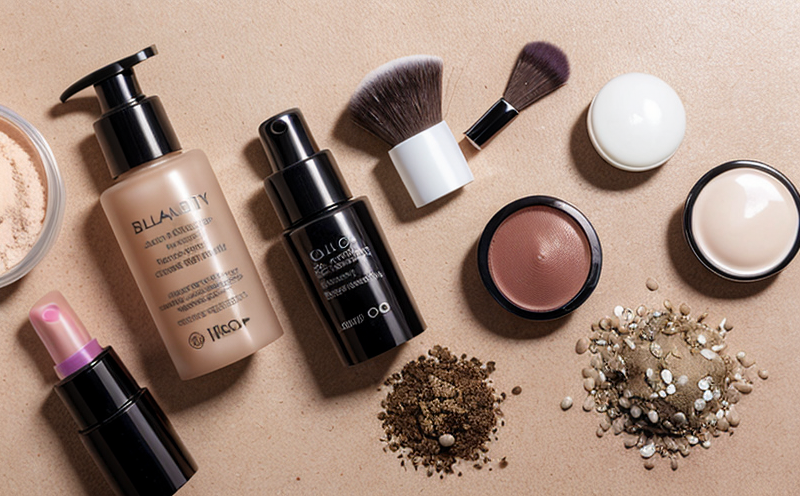Soil Microbial Activity Testing with Cosmetic Residues
The testing of soil microbial activity in relation to cosmetic residues is a critical aspect of ensuring the environmental safety and sustainability of cosmetics. This service aims at evaluating how cosmetic products impact soil ecosystems, focusing on biodegradability and potential adverse effects on soil microorganisms.
Understanding this interaction helps manufacturers design products that not only meet regulatory standards but also contribute positively to the environment by minimizing harmful impacts during their lifecycle. Soil microbial activity is a key indicator of ecosystem health and plays an essential role in nutrient cycling, decomposition processes, and overall soil fertility.
Our testing process involves several steps: first, we collect soil samples from various sites where cosmetic residues have been detected. These samples are then mixed with specific concentrations of the cosmetic products to simulate real-world scenarios. The mixture is incubated under controlled conditions that mimic natural environmental factors such as temperature and humidity.
The microbial community in these samples is monitored over time using advanced microbiological techniques, including quantitative PCR (qPCR) for biomass quantification and high-throughput sequencing for diversity analysis. This approach allows us to assess changes in both the abundance and composition of soil microorganisms due to exposure to cosmetic residues.
Absolutely critical are our state-of-the-art laboratories equipped with sophisticated instrumentation like flow cytometers, confocal microscopes, and automated culture systems that enable precise quantification and observation of microbial responses. Our team of experts ensures rigorous quality control throughout the process, ensuring accurate results every time.
The findings from this testing can inform product formulation adjustments aimed at enhancing biodegradability while maintaining efficacy and safety. For instance, certain ingredients may need to be modified or replaced if they show significant toxicological effects on soil microorganisms. Additionally, this data supports compliance with international standards such as ISO 17592-4:2016 and OECD Guidelines for Testing of Chemicals.
Applied Standards
| Standard | Description |
|---|---|
| ISO 17592-4:2016 | Procedure for determining the biodegradability of organic compounds in soil. |
| OECD 301 F | Guidelines for testing the ready biodegradability of chemical substances in an aqueous medium. |
| ASTM D5487-21 | Standard test method for determining the biodegradation of organic compounds by soil microorganisms using a static system. |
EuroLab Advantages
At EuroLab, we pride ourselves on offering unparalleled expertise in environmental testing. Our comprehensive suite of services includes not only soil microbial activity testing but also a wide range of other analyses tailored to the cosmetics industry.
- State-of-the-art facilities: Equipped with cutting-edge technology and methodologies that ensure precise measurements and reliable results.
- Experienced professionals: Our team consists of highly qualified scientists who bring extensive experience in environmental assessment to every project.
- Dedicated research: We continuously invest in research and development, ensuring our methods remain at the forefront of scientific advancement.
- Comprehensive reports: Providing detailed insights into your product's impact on soil ecosystems, helping you make informed decisions about future developments.
We are committed to providing accurate, reliable data that can be used confidently for regulatory submissions and internal decision-making processes. Our goal is to support sustainable practices within the cosmetics industry by offering robust scientific evidence supporting environmentally responsible choices.
Customer Impact and Satisfaction
- Better product development: By understanding how your products interact with soil, you can improve their formulation to ensure they are more biodegradable and less harmful.
- Improved regulatory compliance: Our testing helps you stay ahead of changing regulations related to environmental impact assessment.
- Enhanced reputation: Demonstrating a commitment to sustainability enhances your brand's image among environmentally conscious consumers.
- Cost savings: Early identification and correction of problematic ingredients can save time and money during product development stages.
Customer satisfaction is paramount for us. We work closely with our clients throughout the testing process, ensuring they receive clear communication about their project's progress and final results. This collaborative approach helps build trust and long-term relationships based on mutual respect and shared goals.





